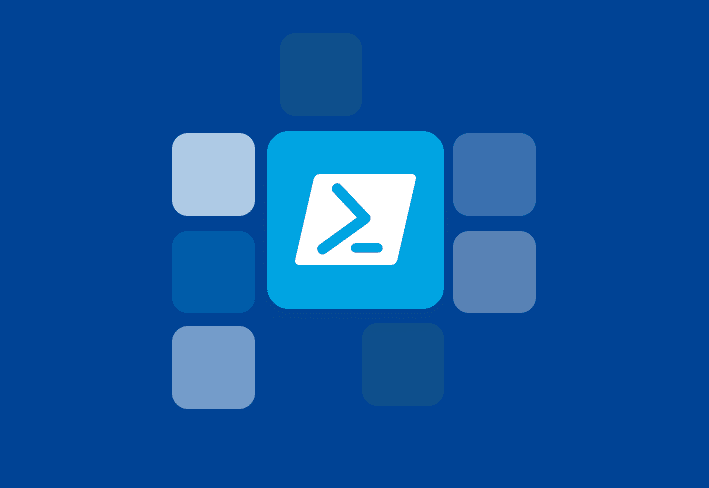The last few years have been less than kind to all of us — and even worse to sysadmins. They collectively scrambled to make their environments remote friendly in 2020. Supply chain issues made ordinary tasks complicated. Every day brought a new challenge to be solved, and fast.
To get a pulse check on our friends in the industry, we conducted our annual State of System Administration survey, getting responses from more than 1,000 sysadmins. (B̶r̶i̶b̶e̶s̶ w̶o̶r̶k̶, a̶p̶p̶a̶r̶e̶n̶t̶l̶y̶.)
We surveyed them on topics in six different categories: demographics, salary, sentiment, work environment, cybersecurity, and their toolboxes. We’ll share the most surprising sysadmin stats in this blog — but be sure to download the full report to get fully up to speed on the state of system administration in 2023.
How we conducted our State of System Administration survey
We persuaded more than 1,000 sysadmins to take our survey. They come from all around the world and from all types of industries, from manufacturing to education. The sysadmins who participated are largely experienced with 10+ years of system administrator and information technology work under their belts.
It’s also worth noting that small and midsized businesses were most represented by our respondents, and nearly half of these sysadmins manage between 101–500 machines.
Sysadmins tend to earn more than the average American
Want to make more money than the average American? According to our survey results, working as a systems administrator might just give you those bragging rights.
The median salary for American households is right around $71,000, while most of our systems administrator respondents have a salary ranging from $75,000 to $99,999 all by themselves. Of course, the more you learn, the more you earn — at least according to our results.
Industry matters, too. Sysadmins who work in industrials, tech, finance, and healthcare tend to be paid more than other sysadmins.
As pandemic stresses calm, sysadmins are feeling more respected
Respect is more than a pop hit belted out by one of the greats in the music industry. It’s also the most important leadership behavior, according to a Georgetown University survey. And while this next statistic might make a few sysadmins roll their eyes, bear with us — we’re just the messengers!
Sysadmins report feeling more respected coming out of the pandemic. They feel that their roles are critical to their company’s success and also tend to believe that sentiment is largely shared by the powers that be at their companies.
Interestingly, we saw a jump between 2022 and 2023 regarding how sysadmins feel about the support they receive from executives. Over 73% of respondents either agree or strongly agree that they get the support they need to be successful from their executive team.
Are those phishing attempts being launched against executives working in sysadmins’ favor? We may never know for sure, but we’re glad to see these high numbers regardless.
Sysadmins’ stress levels are unchanged from last year — but two industries are more stressful than others
Any job that puts an entire company’s virtual infrastructure in your hands is a bit stressful. But how stressful seems to depend on the industry you’re in.
Sysadmins who work in healthcare and education reported being more stressed this year than last year, which makes sense. With increased cyberattacks, breaches, and double extortion cases — not to mention compliance standards to adhere to, such as HIPAA and FERPA — these industries tend to be a bit more stressful for sysadmins. Meanwhile, the tech sector looks more like a walk in the park — at least as far as stress is concerned.
Expected turnover for sysadmins is well below the national average
Here’s a statistic that may shock you, especially if you’re a burned-out sysadmin: Expected turnover for sysadmins is well below the national average.
Around 36% of professionals in the U.S. plan to leave their jobs, while only 7% of sysadmins reported this sentiment. And of those 7% of sysadmins who expect to leave their jobs, more than half of them — around 61% — plan to stick to systems administration.
There’s a notable correlation between turnover and tenure (which may be explained by the salary trends discussed earlier). The more experience a system administrator has, the more likely they are to stick around in their role. Compared to other professionals in the U.S., even the least experienced sysadmins are much more likely to stay in their roles.
Feeling ready for a change of pace — and a higher salary? An IT certification may be a good place to start. Check out our list of the best IT certifications every sysadmin should consider getting.
Sysadmins are most concerned about burnout and workload
Ready for a statistic that surprises no one — not even a single soul?
At the top of sysadmins’ list of concerns are burnout and workload. They’re tired, boss. They have overflowing workloads, which can quickly turn into burnout.
And on that note, if you’re struggling with burnout, send this article to your boss. They can’t help you mitigate burnout if they don’t know you’re feeling it — and this blog can be a great conversation starter to get the ball rolling on a solution.
Cybersecurity is a growing concern
Where there’s internet, there are cybersecurity concerns, and the jobs of sysadmins are no exception.
This is especially prevalent in the healthcare field, where in the U.S., the number of cyberattacks doubled yearly between 2016 and 2021. Why? Because that’s where the money is for threat actors.
Hospitals and other healthcare facilities are a goldmine for hackers. Once they circumvent preventive security measures, they can hold personally identifiable information (PII) for both patients and employees hostage. And if hackers demand a ransom for the return of the data, there’s no guarantee that they haven’t saved a copy for nefarious purposes in a move known as cyber extortion.
This is nothing but bad news for the healthcare facilities impacted, as losses in brand reputation and actual loss of business are common outcomes in these attacks.
And onto more disturbing news: Even sysadmins who had to work through a cyberattack within the last 5 years are feeling only somewhat prepared for the next attack. This is hardly different from the responses of sysadmins who haven’t experienced a cyberattack in that time frame.
It’s pronounced GIF
At the risk of being accused of burying the lede, we come to what’s arguably one of our most important findings.
Most sysadmins — around 79% — pronounce GIF with a hard G, like the G in the word gift. And you know what? All of you are entitled to your very wrong opinions.
For those who are quick with the comeback, “Yeah, because gum totally has a J sound!” may I present to you giraffe, gel, germ, and gelatin. Even the creator of the GIF, Steve Wilhite, announced during an acceptance speech that GIF is pronounced with a soft G.
Loading...
And even if I’m among the lonely few who pronounce it correctly, at least I have the backing of the most delicious peanut butter ever made.
Want to learn more about the state of system administration? Download the full 2023 State of Sysadmin report for more findings.
We may not have all the answers to solving all the problems that sysadmins face — but easier device management sure is a great place to start. Start a free 14-day trial of PDQ Connect to deploy packages, streamline IT tasks, and manage your devices from the cloud.





